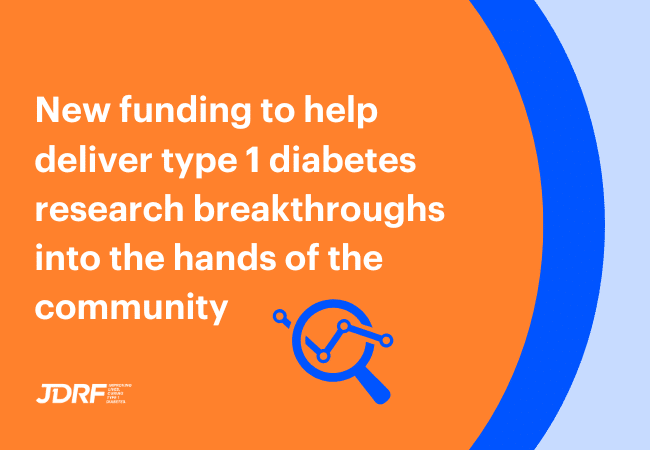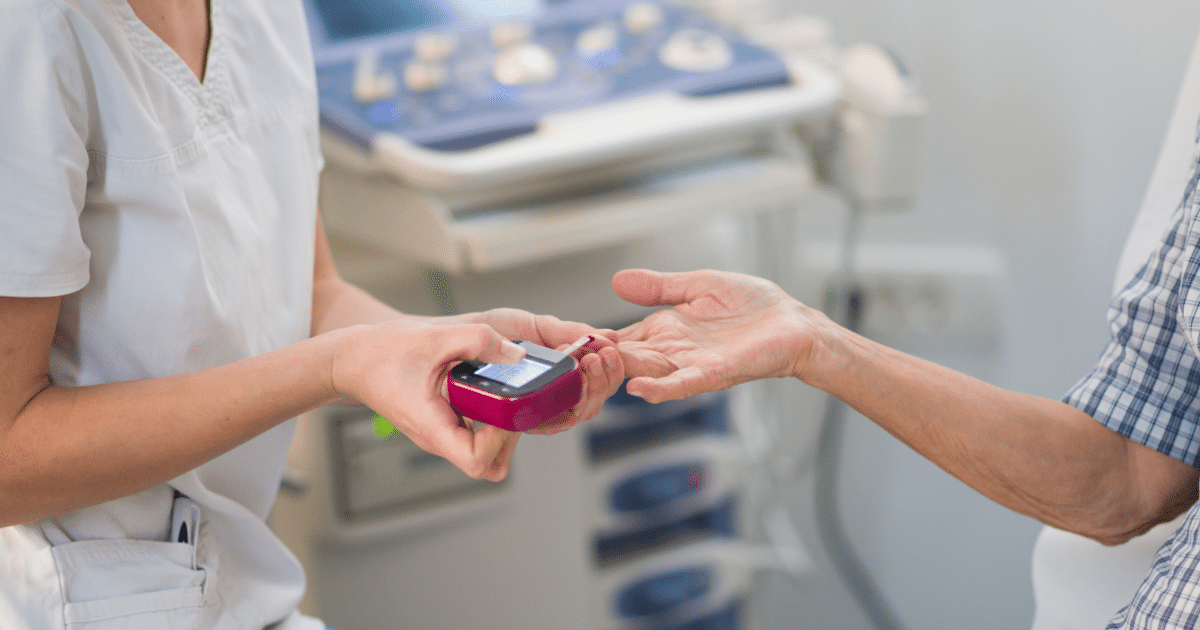T1D Research Roundup: 5 Biggest Research Advances From This Year’s ADA Meeting
This year, the American Diabetes Association (ADA) Scientific Sessions went virtual – over six days, researchers presented some of the biggest T1D research advances, with the sessions taking place entirely online. JDRF was the key funder and supporter of many of the top advances shared. Here’s our roundup of the most exciting breakthroughs to come out of this year’s ADA – from huge new results for immunotherapies that can slow T1D onset, to the next generation of closed-loop technology, and fresh insights into the causes of T1D.
Teplizumab delays T1D onset by 3 years
In 2019, a study by JDRF-funded TrialNet showed that teplizumab could delay T1D diagnosis by a median of 2 years, in people with a high risk of developing the disease. Updated results from this clinical trial were presented at this year’s ADA, showing that the effect of the drug had been sustained even longer. Half of the people taking teplizumab remained diabetes-free after 3 years, compared with 22% of those taking placebo.
Teplizumab also reversed the loss of C-peptide in people with T1D – an indication that the treatment improves the function of beta cells. Teplizumab is currently being tested in a larger phase III clinical trial, where researchers hope to see more incredibly exciting results.
Diet, gut bacteria and T1D prevention
A/Prof Emma Hamilton-Williams from the University of Queensland presented preliminary results from a JDRF-funded clinical trial of a diet-based therapy that targets the microbiome of people with T1D. The microbiome is the unique combination of bacteria that live in a person’s gut. Some of these bacteria play important roles in the body – helping us to digest food, regulate blood sugar and develop immune cells.
Previously, the researchers found that a specially designed fibre-based diet can help protect against T1D development in mice, by promoting the development of certain gut bacteria that produce nutrients called short-chain fatty acids. Now, they carried out a small clinical trial as a first step towards seeing whether a similar effect occurs in people with T1D. A/Prof Hamilton-Williams presented some of the initial results from this study, demonstrating how the diet affects both the gut microbiome of people with T1D, and their glucose management. This research is an important step towards understanding how fibre supplements and short-chain fatty acids could be used to treat or prevent T1D.
New insights into the causes of T1D
Dr Marian Rewers presented updated results that help to shed light on what causes islet autoantibodies to develop – one of the earliest signs of T1D that happens before symptoms begin.
The Environmental Determinants of Diabetes in Youth (TEDDY) study has screened almost half a million children across the US, Finland, Sweden and Germany for islet autoantibodies. The researchers found that islet autoantibodies generally develop very early, between the first and second years of life. They found that the best approach for predicting which children will develop T1D is to combine islet autoantibodies with genetic markers, giving an overall picture of T1D risk. The results also showed a difference in the gut bacteria and viruses of children who develop islet autoantibodies, compared to those who don’t – similar to results seen in Australia’s ENDIA study. In the future, the researchers hope to be able to prevent the development of islet autoimmunity.
Promising results for new immunotherapies
Exciting results were presented for several new therapies with the potential to slow the progression of recently diagnosed T1D.
Some of the most promising results came from a combination of anti-interleukin-21 (IL21) – an antibody that targets a messenger of the immune system – and liraglutide, a medication used to treat type 2 diabetes. After 54 weeks of treatment in a clinical trial, people who received the combination therapy had better beta cell function and lower insulin requirements compared to those taking either placebo or liraglutide alone.
Similar results were seen in a smaller trial for golimumab, an antibody used to treat rheumatoid arthritis. Children and young adults who received golimumab had a slower reduction in beta cell function over 52 weeks than those who received placebo.
The next generation of closed-loop systems
Positive results were presented from clinical trials on the next generation of closed-loop insulin delivery systems, including the Medtronic 780G and Omnipod Horizon. A US-based clinical trial showed an overall time-in-range of 75% for people using the 780G, with high user satisfaction. A second clinical trial in New Zealand compared the Medtronic 780G to the older 670G system and showed dramatic improvements in time-in-range (from 59% before the study, to 73% while using the 780G) and correction of hyperglycaemia. They also had an improvement in sleep quality and high acceptance of the technology. Similar results were seen for the Omnipod Horizon, which showed a time-in-range of more than 70%. These results are a crucial step towards making these new systems available for use around the world, including in Australia.
Interested in enrolling in a T1D clinical trial? Visit the JDRF Trial Finder to find trials recruiting in your area.




